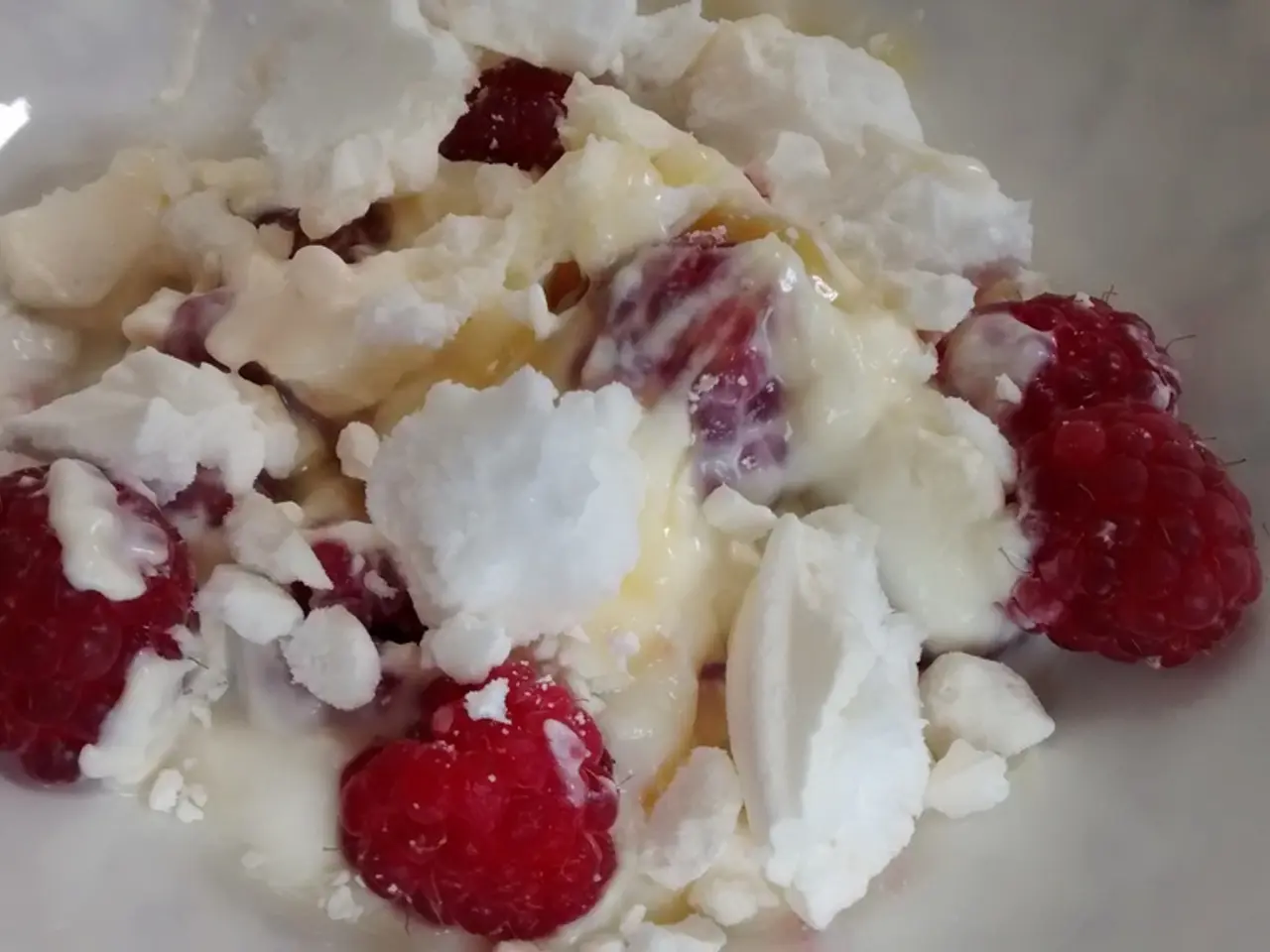Diet for Blemish-Free Skin: Foods to Avoid, Foods to Eat, and Unhealthy Foods to Shun
In the quest for clearer skin, many people are turning to their diets for answers. Here's a breakdown of the foods that may help improve acne, as well as those to avoid, based on recent research.
Foods to Avoid
Dairy products, particularly skim milk, are often culprits in acne flare-ups due to hormones and growth factors they contain. Sugary foods and drinks, fast foods, highly processed foods, white bread, and foods with added sugars are known to raise insulin levels and worsen acne by increasing oil production and clogged pores.
Processed meats with nitrates and preservatives, excess omega-6 fatty acids found in soybean, corn, and safflower oils, and meat treated with hormones can promote inflammation and collagen breakdown, potentially contributing to acne.
Foods to Include
To combat acne, it's beneficial to consume foods rich in anti-inflammatory and antioxidant properties. Foods rich in zinc, such as seafood, nuts, beans, and whole grains, can improve acne. Antioxidant-rich colorful fruits and vegetables, green tea, foods high in vitamins A and D, vitamin E-rich foods, and omega-3 rich foods can help reduce inflammation, oxidative stress, and fight acne.
Adopting a low glycemic diet by reducing high GI foods can also help reduce insulin and sebum production, potentially lessening acne severity.
Resveratrol, found in red grapes and red wine, may have several health benefits, including protecting the skin from UV damage, preventing skin aging, and reducing the appearance of acne. Some studies suggest that resveratrol may help the skin stay moisturized, prevent it from losing heat, protect against UV damage, and promote skin integrity.
Soy may decrease DHT levels, a hormone related to testosterone that plays a role in increasing acne development, and may help reduce acne by decreasing the number of acne lesions. However, more research is needed to confirm these findings.
It's important to note that while diet can play a role in acne, it may not be the sole solution. Some causes of acne may not be related to diet, and individuals with severe acne or acne that does not respond to home treatments may wish to consult with a doctor or dermatologist.
The American Academy of Dermatology Association recommends the following steps for treating acne: using acne products for at least 4 weeks, using specific acne products that contain benzoyl peroxide, retinoids, or salicylic acid, following the directions for acne products, washing the face regularly, avoiding scrubbing the affected skin, using skin care products that are known not to cause acne, not picking or popping acne, applying acne products to the whole face, frequently washing pillowcases and other items that come into contact with the skin, and making an appointment with a dermatologist if necessary.
In conclusion, minimizing intake of sugary, processed, high glycemic, dairy, and inflammatory omega-6 rich foods while increasing consumption of antioxidant, anti-inflammatory, vitamin-rich, and omega-3 rich foods can help improve acne and skin health.
- In the pursuit of clearer skin, dairy products, particularly skim milk, are often found to trigger acne flare-ups due to their hormones and growth factors.
- Sugary foods, fast foods, highly processed foods, white bread, and foods with added sugars are known to increase oil production and clogged pores, worsening acne.
- Foods rich in zinc, such as seafood, nuts, beans, and whole grains, can help improve acne by reducing inflammation and improving skin health.
- Adopting a low glycemic diet by reducing high GI foods can help reduce insulin and sebum production, potentially lessening acne severity.
- Resveratrol, found in red grapes and red wine, may help protect the skin from UV damage, prevent skin aging, and reduce the appearance of acne.
- Soy may decrease DHT levels, a hormone related to testosterone that plays a role in increasing acne development, and may help reduce acne by decreasing the number of acne lesions.
- While diet can play a role in acne, it may not be the sole solution, and individuals with severe acne or acne that does not respond to home treatments may wish to consult with a doctor or dermatologist.




